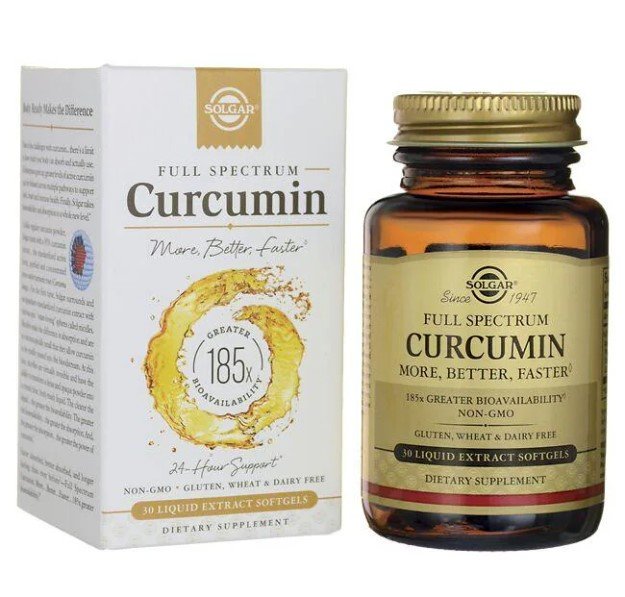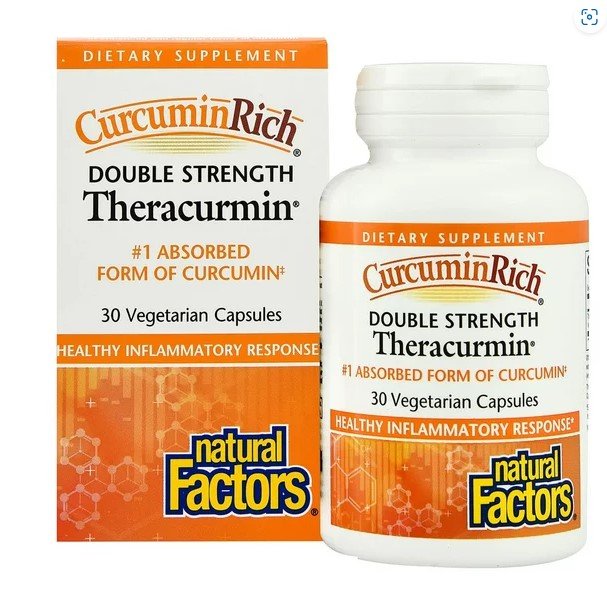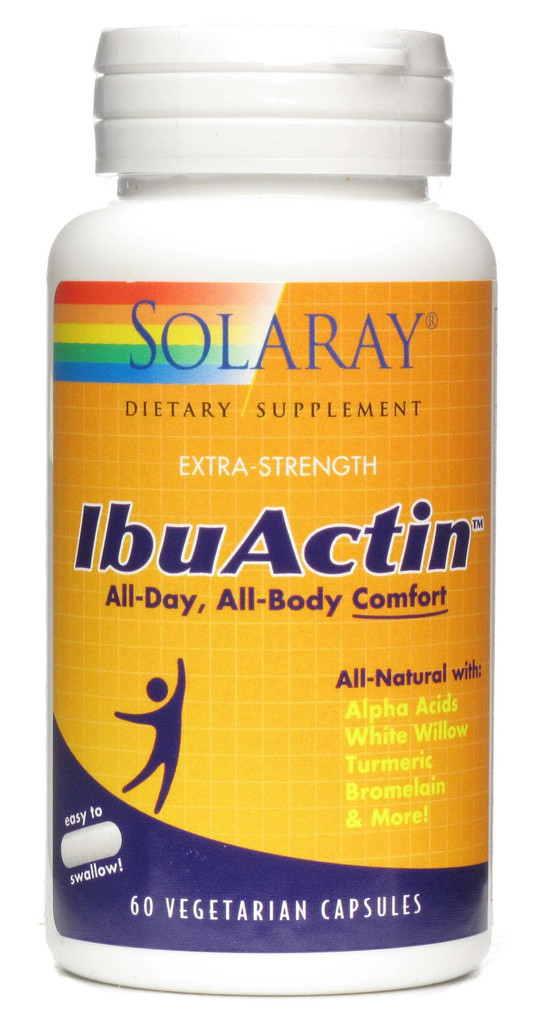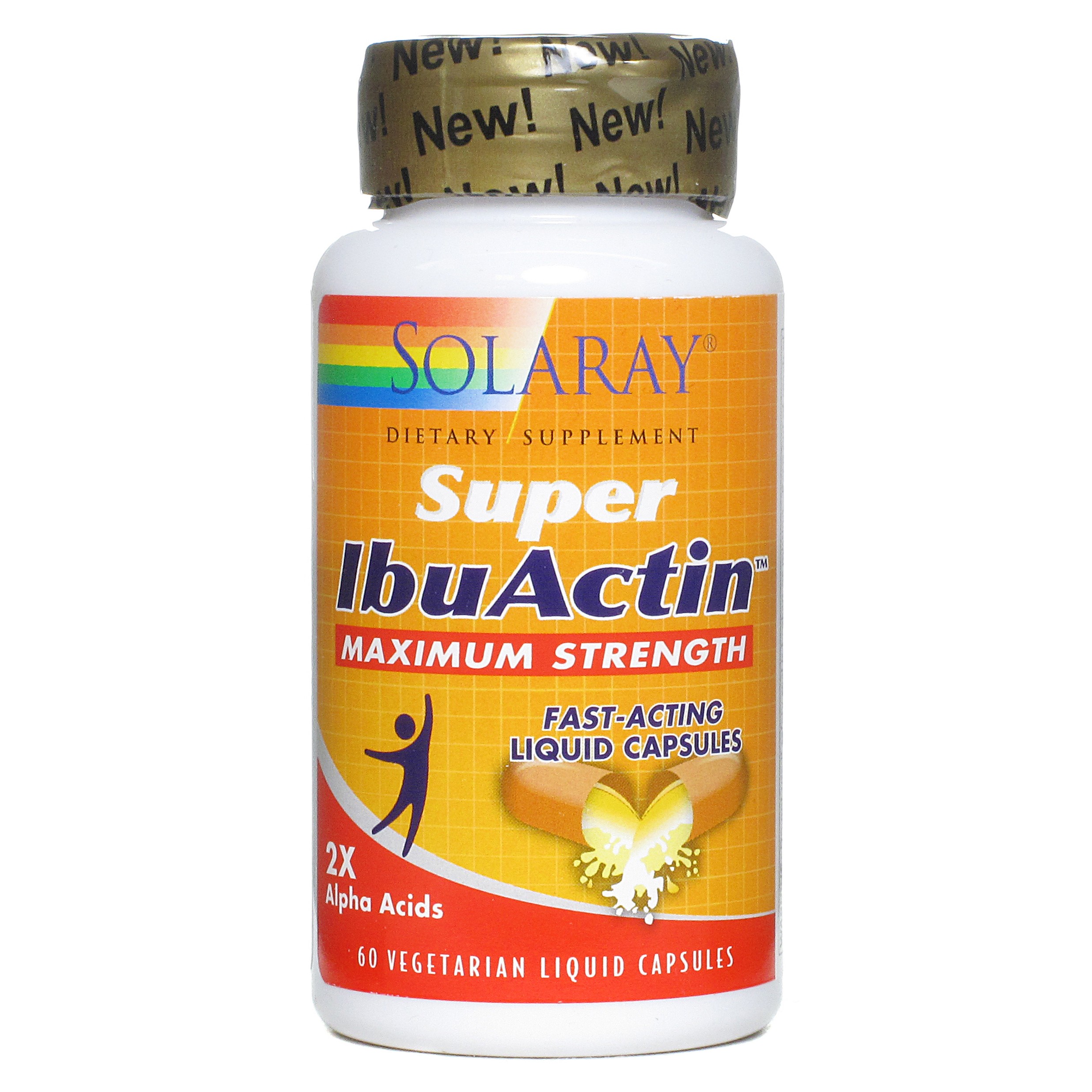Curcumin is the beneficial extract of turmeric, and has become very well known for its benefits for reducing inflammation and for pain relief. Turmeric is the yellow spice often used in Southeast Asian and Indian foods.
People often get turmeric and curcumin confused, but just like an orange has vitamin C, turmeric has curcumin. The reason a person would take turmeric as a supplement would be to get the curcumin it contains. The problem is, turmeric is only about 4% curcumin, and on top of that, curcumin in its natural state is difficult for the body to absorb. As with anything, what really matters is how much of something your body is actually using versus what you're swallowing.
Due to absorption issues and advances in curcumin supplements, we've always recommended the Solgar Full Spectrum Curcumin because our research had shown that that form of curcumin and the way it's made makes it better absorbed than any other curcumin we’ve found.
We still love the Solgar curcumin, but we've found a new curcumin by Natural Factors that is supposed to be a similar product with similar absorption. It's also a water-soluble extract, but it's made in a different way than our Solgar one, but with a similar effect for absorption.
The curcumin in Natural Factors Theracurmin is ground down to 1/100th of the size, and then it's coated in a natural ingredient to make it water-soluble, which is then dried so it's in a powder form, in a small capsule.
The best part is that it's a very good price. We still absolutely love the Solgar curcumin and think it really works, but it's looking like this new Natural Factors Double Strength Theracurmin will have similar absorption and effectiveness, at a higher strength per pill at a lower price (the "double strength part is important since they have a" regular strength" version that's less potent that we don't carry). Each pill if their "double strength" also a little higher concentration of the extract than our Solgar Curcumin and the pills are smaller.
Our Solgar Curcumin 30ct. sale price is $26.39 (the regular price $32.99) and the new Natural Factors Theracurmin 30ct. is on every day sale for $22.46 (the regular price is $29.95). It's not a huge difference, but it is less. For this month, we do have a supply of $5 off coupons for the Natural Factors curcumin, so it brings the price down to $17.46, which is a pretty good price. Remember, the Theracurmin is also a little more potent per pill.
We'd recommend giving it a try this month to see if it works for you. Everyone's body is different, and the only way to see if something helps is to try it, no matter how glowing the research might be. For some people, the Solgar curcumin might work better, it vice versa, so we'd just suggest trying it to see what you think.
The nice thing about curcumin, whichever type you’re taking as long as it's a well-absorbed version, is that results are usually seen quickly, usually within the first week, sometimes even sooner. If you have joint pain or injury pain or pain from whatever, we'd recommend giving curcumin a try. Research has shown it has similar effectiveness to that of ibuprofen, but unlike over the counter medicines like ibuprofen, curcumin isn't hard on the body and is safe to take every day. There are even side benefits: there is preliminary research linking the use of curcumin to a reduced risk of Alzheimer's and other neurodegenerative diseases (nothing conclusive, but still). Curcumin use has also been shown beneficial for cardiovascular health and for cancer prevention.







